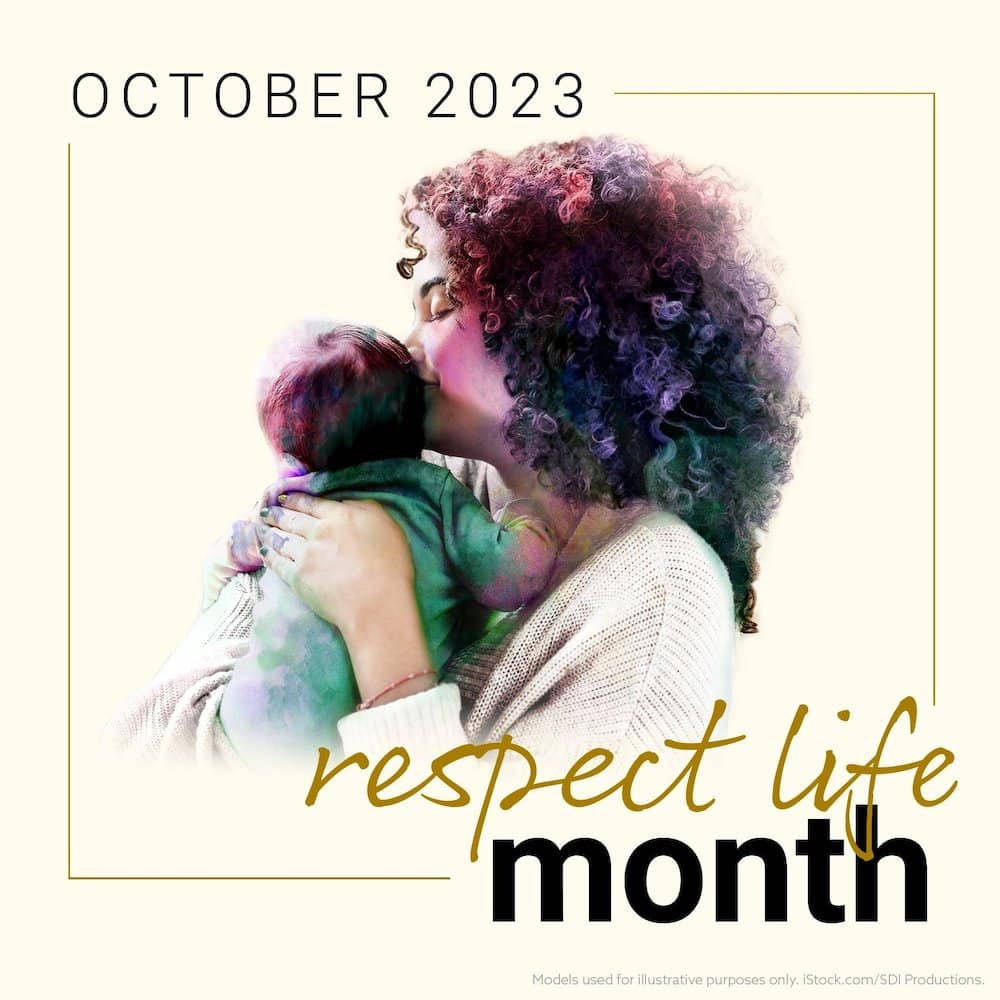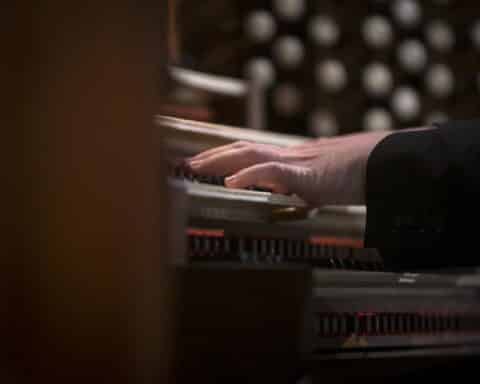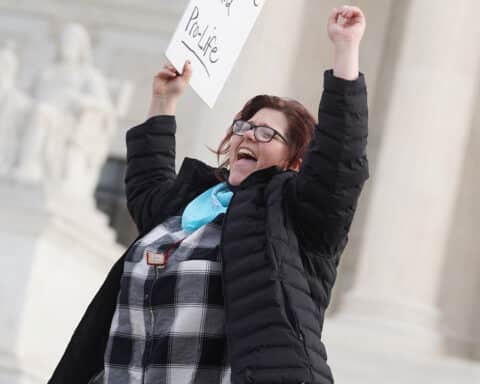Beginning in 1973, the United States Conference of Catholic Bishops has designated October as Respect Life Month. Respect Life Month was implemented in the year of the infamous United States Supreme Court decision Roe v. Wade, preventing states from making reasonable regulations on access to abortion.
The overruling of Roe by the 2022 case of Dobbs v. Jackson Women’s Health Organization did not eliminate the need for a specific month dedicated to thinking, praying, and educating about abortion policy. On the contrary, the matter is even more urgent than when Roe was the law. The Dobbs case did not end the war over abortion but only moved the battles to each of the 50 states. Now more than ever, Respect Life Month is an urgent call to dedicate ourselves to the problem of abortion and its various implications.
The theme of Respect Life Month in October 2023 is “Radical Solidarity,” emphasizing women facing challenging pregnancies. Solidarity is one of the four principles of Catholic Social Doctrine, along with subsidiarity, common good, and dignity. All four must be considered in any question of public morality or social policy issue.
But dignity is always the first consideration, as it lays the foundation for the other three. Unique among God’s creatures, God made man in his image and likeness. The human person stands apart from the other animals for special moral consideration. Thus, in its material for this year, the USCCB has explained, “The Church’s entire social doctrine is guided by the fundamental principle that every human life has innate dignity.” But what is “dignity”? How do we know it when we see it? And what implications does it have for “radical solidarity,” as it applies to unborn children and stressful pregnancies?

Can dignity be found?
Bob Dylan’s 1991 song “Dignity” is a wonderful musical illustration of the elusiveness of the definition and recognition of dignity. In a series of vignettes, Dylan explores common human quandaries and wonders if dignity can be found in the persons or predicaments he describes. “Searchin’ high, searchin’ low,” he sings, “Searchin’ everywhere I go/Askin’ the cops wherever I go/Have you seen dignity?”
The singer in Dylan’s song feels the same sense of futility that often attends an attempt to define “dignity.” The problem is that the singer has started his search for dignity from the assumption that it is constituted by a range of external characteristics rather than an inherent quality. Popular notions of dignity usually associate it with a series of peripheral traits or attributes, absent which one person has relatively less or more dignity than another. “Sick man lookin’ for the doctor’s cure/Lookin’ at his hands for the lines that were/And into every masterpiece of literature/For dignity.” When the various people he encounters do not seem to have the attributes he thinks are necessary for dignity, the singer concludes that dignity cannot be found.
Ultimately the quest is elusive, and the song ends without a resolution either of what dignity is or who possesses it:
Someone showed me a picture and I just laughed
Dignity never been photographed
I went into the red, went into the black
Into the valley of dry bone dreams
So many roads, so much at stake
So many dead ends, I’m at the edge of the lake
Sometimes I wonder what it’s gonna take
To find dignity
Human solidarity
The singer concludes that dignity is elusive, even non-existent, because he cannot find anyone who meets his criteria. Now, contrast this vision with the Catholic understanding of inalienable dignity, rooted in the very nature of the human person as created in the image and likeness of God. Dignity is not the sum of some arbitrary inventory of attributes but inherent in every human being.
The difficulty of Dylan’s singer’s quest is aggravated when it is conducted within the constraints of an individualist moral anthropology. This theory reduces the human person to an autonomous atom, separate and alienated from his fellow persons and possessing claims against them. In other words, this moral theory fundamentally rejects the notion of natural human solidarity.
In contrast, as the USCCB has emphasized, inherent dignity is the foundation for the doctrine of solidarity. Solidarity has both a descriptive and prescriptive quality. It describes the nature of the human person as a social being. In the first creation account in Genesis, the human is created as a community of persons: “Male and female” God created them. In the second account, the first person is not complete until God creates the second to accompany him. Man is complete in society with others toward whom he is oriented.
From these descriptions of solidarity, we derive the prescriptive sense. Created in relationship to one another, we are called to affirm and sustain that natural relationship by living for others. As the USCCB has put it (quoting Pope St. John Paul II): “Solidarity is the means by which we put our love for others into action, making the good of others our own. Solidarity ‘is not a feeling of vague compassion or shallow distress at the misfortunes of so many people. … On the contrary, it is a firm and persevering determination to commit oneself to the common good … to the good of all and of each individual, because we are all really responsible for all.'”
This includes committing time, prayer, money and other resources to aligning ourselves with and standing in support of expectant mothers and their unborn children, regardless of external attributes or characteristics. This is “radical” solidarity rooted in authentic human dignity.





